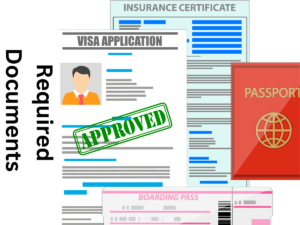Did you also have a childhood dream of becoming a doctor and contributing to the world of modern medicine? Studying MBBS in Germany can be the perfect starting point for your career!
Indians are excelling in every field, especially in the medical field. They are highly competent and seek the best education in the world’s top institutes. The trend of moving to non-English-speaking countries to study medicine is increasing. As a result, most Indian students choose Germany to pursue their medical studies. Studying MBBS in Germany can be a great choice as it offers high-quality free education, internationally recognized degrees, and the opportunity to live in a beautiful and developed country. In addition, Germany has a world-renowned healthcare system known for its innovation and focus on patient well-being. By earning a medical degree in Germany (equivalent to MBBS), you acquire a globally recognized qualification that opens the door for you to practice medicine anywhere in the world.
Overview of Top 10 Public Universities
Universitites | Deadlines | German Language Level | Semester Fee | Start of Degree Program | Document Requirements | |
1 | University Of Munich | Winter: May 31 Summer: 30 November | DSH level: 2 or 3 Telc: C1, Goethe Certificate: C2 TestDAF: Level 4 | 140 EUR | Winter: October | Depending on the Country of Origin High school diploma, German proficiency GRE,GATE,APS |
2 | Humboldt University of Berlin | Winter: 1.06.2024 | German: DSH level: 2 or 3 Telc: C1, Goethe Certificate: C2 TestDAF: Level 4 | 300 EUR | July 2024 | India & China: APS Apply via Uni-assist High school diploma, German proficiency |
3 | University of Bonn | Winter: 15 July Summer: 15 January | German: DSH level: 2 or 3 Telc: C1, Goethe Certificate: C2 TestDAF: Level 4 | Examination fee: 140 EUR | Winter: October | German translation of some documents High school diploma, German proficiency |
4 | University of Hamburg | Winter: 15 July | German: DSH level: 2 or 3 Telc: C1, Goethe : C1 TestDAF: level 4 | 340 EUR | Winter: 13th July, 2024 Summer:19th, April 2025 | High school diploma NEET for non-EU |
5 | University of Bremen | Winter: 15 July Summer: 15 January | German: DSH level: 2 or 3 Telc: C1, Goethe : C1 TestDAF: level 4 or partial atleast 3 | 380 EUR | Summer: April Winter: October | High school diploma NEET for non-EU |
6 | University of Heidelberg | Winter: 15.07.2024 high rite graduates: 31.05.2024 | DSH:2 Telc: C1, Goethe : C2 TestDAF: level 4 | 1500 EUR per semester | Winter: October | Proof of Vaccination Declaration of medical confidentiality TestAS High school diploma, German proficiency |
7 | Ruhr University Bochum | Winter: 15 july Summer: 15 January | DSH:2 or 3 Telc: C1, Goethe : C2 TestDAF: atleast 16 points within an examination | 340 EUR | Winter: October | Register with Hochschulstart before applying at RUB India & China: APS High school diploma, German proficiency |
8 | University of Freiburg | Winter: 15 july Summer: 15 January | DSH:2 or 3 Telc: C1, Goethe : C2 TestDAF: 4 or 5 | 1500 per semester | Winter: 1 October Summer: 1 April | TestAS High school diploma, German proficiency |
9 | Goethe University Frankfurt | Winter: 15 july Summer: 15 January | DSH:2 or 3 Telc: C1, Goethe : C2 TestDAF: 4 or 5 | 370 EUR per semester | Winter: 1 October Summer: 1 April | India & China: APS Apply via uni-assist High school diploma, German proficiency |
10 | Medizinische Hochschule Hannover | Winter: 1.04 till 31.05 Studienkollege: 01.04 to 15.07. | DSH:2 or 3 Telc: C1, Goethe : C2 TestDAF: 4 or 5 | 395 EUR | Winter: October | TestAS Assesment test: FSP High school diploma, German proficiency |
Are you also considering becoming a doctor in Germany but feeling overwhelmed by all the requirements? Relax, we’ve got you covered! This blog post is your one-stop guide to everything you need to know: eligibility criteria, tuition fees, language requirements, deadlines, and what you can expect after graduating with your MBBS in Germany. So let’s get started!
Admission Requirments for Studying Free MBBS in Germany for Indian Students

In Germany, the MBBS program, known as “Medicine” or “Human Medicine”, is a challenging and rewarding six-year journey. Furthermore, it seamlessly combines theoretical knowledge with practical experience and provides students with a solid foundation for their clinical careers. This integrated approach ensures that graduates not only master the medical sciences but can also easily apply them in everyday clinical practice.
German universities offer top-notch medical programs, many with NO tuition fees! Sounding good? Let’s go through in detail the eligibility criteria to make sure Germany’s medical schools are a great match for you.
Eligibility Criteria for Indian Students
After completing the A-Levels (equal to 12th grade) students complete a preparatory foundation year known as “Studienkolleg“. This year fills the gap between the Indian and German education systems and prepares them for the specific demands of medical studies in Germany. To start studienkolleg students should have German skills level B1 or B2 along with good grades in A-Levels (12th). Afterward, you must clear an examination at the end of this foundation year called “Feststellungsprüfung“. After this examination, Indian students can apply for a medical degree at a German University.
However, here is the good news for all international students! each university reserves 5% seats for international students but these posts are competitive, and students with the highest grades win the seats. Let’s see those specific requirements that you need to consider other than studienkollege to get selected.
- Indian students who have completed their 12th grade with a focus on Biology, Physics, and Chemistry are eligible to apply for MBBS programs in Germany.
- The applicants need to be at least 17 years old.
- Applicants are required to score a minimum of 70% on their examination board.
- Candidates must pass the NEET examination, achieving the minimum allowable score.
- Candidates clear a standardized language test of German proficiency, such as the TestDaf certification at Level 4 or higher.
Essential Documents for Indian Students
As a first step, complete your documentation for the application process. Collect your degrees and send them for verification or attestation by the examination board. Additionally, prepare for and take the NEET (National Eligibility-cum-Entrance Test). This is a Pre-Medical Entrance Test for students who want admission to study medicine in India or abroad. Along with these important preparations you should not forget to pass the language test (B2 at least). The following documents should be prepared before applying for admission.
- All previous academic Transcripts
- Neet score-card with good scores
- Authorization of documents by the Ministry of External Affairs, New Delhi,
- TestDaF certificate
- Copy of valid passport
- Two recommendation letters
- Statement of purpose (SOP)
- Well-prepared curriculum vitae
How to Apply for MBBS Admission in Germany for Indian Students?

The application process to apply in German universities is quite easy. Once you’ve completed all the listed documents above, start applying to universities of your interest. However, keep in mind that some universities require you to apply via uni-assist, an application service for foreign students in Germany. Other universities accept applications directly through their university portal. Therefore, it’s best to contact the international office of the university or check on their website to confirm the application process before submitting yours.
Step-by-step guide to the admission process.
- Firstly, the applicant needs to pass the NEET examination.
- Secondly, fill out the application forms for each medical university where you find interest in studying MBBS.
- Thirdly, submit all required documents for verification, such as academic certificates, language proficiency certificates in German and/or English, and passports.
- The university may ask to submit additional documents such as recommendation letters, CVs, statements of purpose, motivation letters, etc.
- Get a confirmation letter in two to three weeks.
- The university will send an acceptance or rejection letter to the candidate after verifying the submitted documents.
- When the candidate is accepted, they must immediately pay the initial fee, and a fee acknowledgment letter will be issued to them.
- Finally, upon acceptance, the applicant must prepare and gather the required documents required for a student visa to Germany.
Documents Required for Visa to Study MBBS in Germany from India

So, once you’ve secured a spot at a top German university, it’s time to tackle the visa process. Our list will help you identify the essential documents needed for your German visa application for your MBBS journey.
Documents Required for a Student Visa Application
- A passport with a minimum of 2 vacant pages.
- Three identical biometric passport photos.
- Two copies of the application form & declaration.
- Sperrkonto (blocked account) with 11,208 EUR or Verpflichtungserklärung (formal obligation letter) from a German sponsor or German/EU scholarship/stipend.
- Acceptance letter from the chosen Medical University in Germany
- All academic certificates with marksheets tested by the Gazetted Officer.
- Language proficiency certificate such as TestDaF.
- Curriculum vitae
- Travel health insurance
- APS Certificate
- Birth certificate
- Embassy/visa fees
Tuition Fee to Study MBBS in Germany

Germany is at the top for educating international students. Unlike other countries, most public universities in Germany do not charge tuition fees for the MBBS program instead students only pay the semester fees which cover administrative costs and student services (such as semester tickets). However, private universities charge tuition fees though, they are more affordable compared to universities in other countries. That’s why, Germany is an attractive option for Indian students, looking for a cost-effective route to pursue a prestigious medical qualification. Below you can see the breakdown of the semester and tuition fees in public and private universities.
- Public universities: Most public universities generally have semester fees ranging from €100 to €500 per semester.
- Private Universities: A few private universities offer MBBS programs in Germany. These institutions charge tuition fees, ranging between 50,000 – 100,000 €.
- Cost of Studying: Generally, MBBS in Germany is offered at 30+ universities at costs ranging from EUR 138 – 2,200 per semester.
Language Requirements to Study MBBS in Germany

Most universities in Germany offer MBBS in the German language. This means that your instruction of course will be in German. Therefore, you’ll need to be able to understand lectures, participate in discussions, and even write exams in German.
- Required Level: A specific level of German proficiency is required, which can vary but depends on the university. Most universities ask for a minimum C1 level on the Common European Framework of Reference for Languages (CEFR). However, some universities also accept the B2 level for initial application, but later, you need to reach the C1 level before the program starts.
- Accepted Tests: To prove your German language skills, universities typically accept scores from recognized tests like:
- TestDaF 4 or 5 (Test Deutsch als Fremdsprache)
- DSH level 2 or 3 (Deutsche Sprachprüfung für den Hochschulzugang)
- Goethe-Zertifikat C1 or C2 (Großes Deutsches Sprachdiplom)
- Telc level C1 Hochschule certificate
Duration of MBBS in Germany

MBBS in Germany is a structured and comprehensive process that usually takes six years and three months. This period can be extended to seven years and three months for international students due to an additional preparatory language course. Below a detailed breakdown of the phases is given.
Phase1: Pre-Clinical Training (2 years)
The first phase is the pre-clinical phase of the MBBS program. This phase lasts for two or four semesters. During these semesters, students understand basic medical and scientific concepts essential for their future studies. The preclinical phase ends with the clinical examination (Ärztliche Prüfung) after which students can undertake further clinical training.
Stage 2: Clinical Training (3 Years)
The second phase consists of three years (six semesters) of clinical training. Students get practical experience in a hospital setting, work closely with medical professionals, and participate in various clinical procedures. The clinical training phase is crucial for developing practical skills and results in a practical examination that assesses the student’s clinical competence.
Phase 3: Practical Year (1 year)
The practical year, also known as PJ (year of internship), lasts one year and includes supervised practical training in government hospitals. During this time, students take on more responsibility and are scrutinized about their performance and readiness to practice medicine independently.
Phase 4: Final Examination and Recognition
Finally, becoming a doctor in Germany ends with the MBBS state exam. Successfully passing this exam and obtaining a medical license confirms that the student is fully qualified to practice in Germany.
Salary Expectations and Career Options after Completing MBBS

Salary Expectations for Doctors:
Well! The average salary for doctors in Germany can vary depending on several factors. Several things come into play, such as their expertise, experience, location, and the type of health facility where they work. On the bright side, MBBS graduates in Germany typically earn quite well. On average, they expect to make around €68,300 (INR 60.24 Lakhs) annually.
Specifically, a young doctor can expect to earn between 4500 and 5500 euros per month, while a specialist with many years of experience can earn more, between 7,000 and 11,000 euros or more per month. In addition to the monetary benefits, obtaining an MBBS degree opens doors to practice medicine in other European countries without any problems. Here are some examples of what you can expect after completing your MBBS in Germany:
Career Options After Studying MBBS:
The most common path after earning an MBBS in Germany is specialist training. This involves additional training in a specific medical specialty, such as:
- Internal Medicine
- Pediatrics
- Ophthalmology
- Psychiatry
- Surgery
- Dermatology
- Anesthesiology
Once you have earned your Facharzt qualification, you will have a wide range of career options to consider:
Hospital Employment: Hospitals across Germany are looking for qualified specialists to fill various positions regularly, which means you will have multiple job opportunities. For example, you can work in a specific department according to your specialty, or choose a more general role in a smaller hospital.
Private Practice: If you have an entrepreneurial spirit, you can set up your private practice and treat patients directly. This path, however, requires additional training in healthcare practice management and business aspects.
Research: Germany has a strong research focus in medicine. If you are passionate about scientific discovery, you can pursue careers in research institutes, universities, or pharmaceutical companies.
Public Health: Public health organizations provide opportunities to contribute to population health and disease prevention, which may include working in areas such as healthcare policy, epidemiology, and global health initiatives.
Occupational Medicine: Companies and organizations often employ occupational physicians to ensure the health and safety of their workforce. This career path allows them to combine their clinical skills with workplace safety regulations.
List of Top 10 Public Universities to Study MBBS in Germany

Public universities in Germany are known and popular for their high academic standards and extremely affordable tuition fees. However, the MBBS programs in Germany can be tough, especially at top universities as hundreds of students around the globe apply for admission every year. Indian students can increase their admission chances through good academic performance, relevant professional experience (if any), and, most importantly, fluency in German (ideally at the C1 level). If you are lucky, hard-working, and organize the required documents within the deadlines as mentioned in our step-by-step guide, then there is a great chance to fulfill your childhood dream of becoming a doctor. Hence, with determination and the right feedback, you can increase your chances of securing your place in a well-reputed university. The following list can be a very good starting point to find the best public university for your MBBS studies in Germany.
Conclusion
While Germany offers high-quality education with no tuition fees, remember that “free” comes with important considerations like high competition and the need for advanced skills. Apart from this, you will also have to consider living expenses and the program itself requires dedication as it is six years long so you will have to work hard. However, with strong language skills and meticulous planning, Germany opens doors to a rewarding medical career with attractive salaries.

